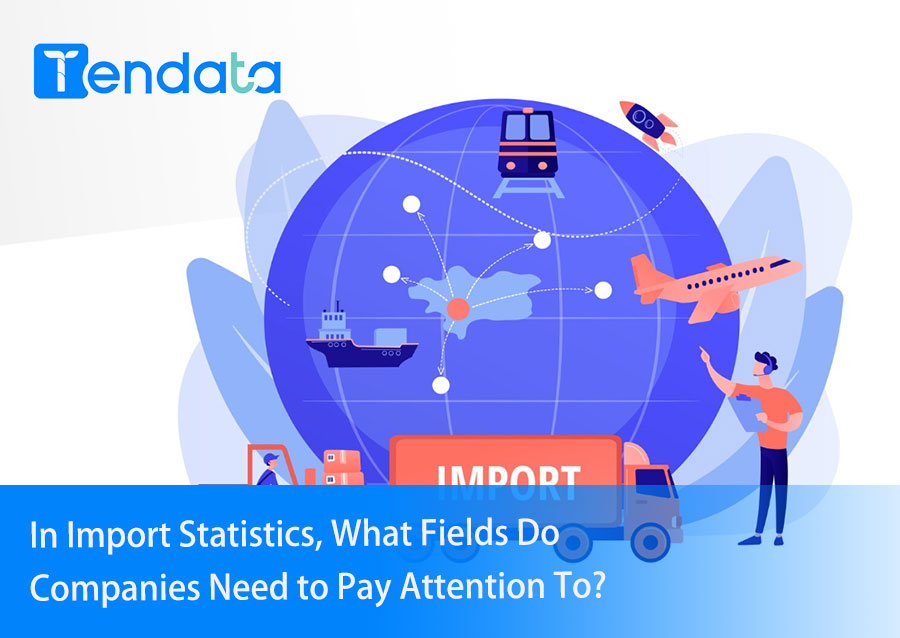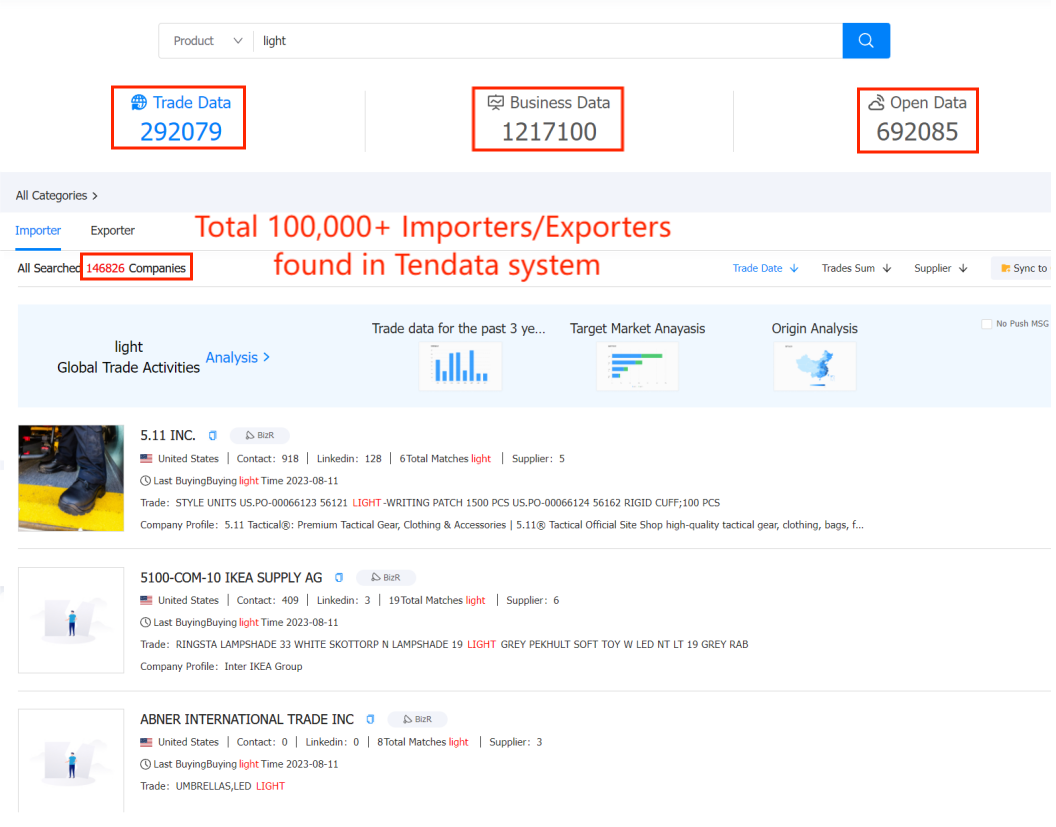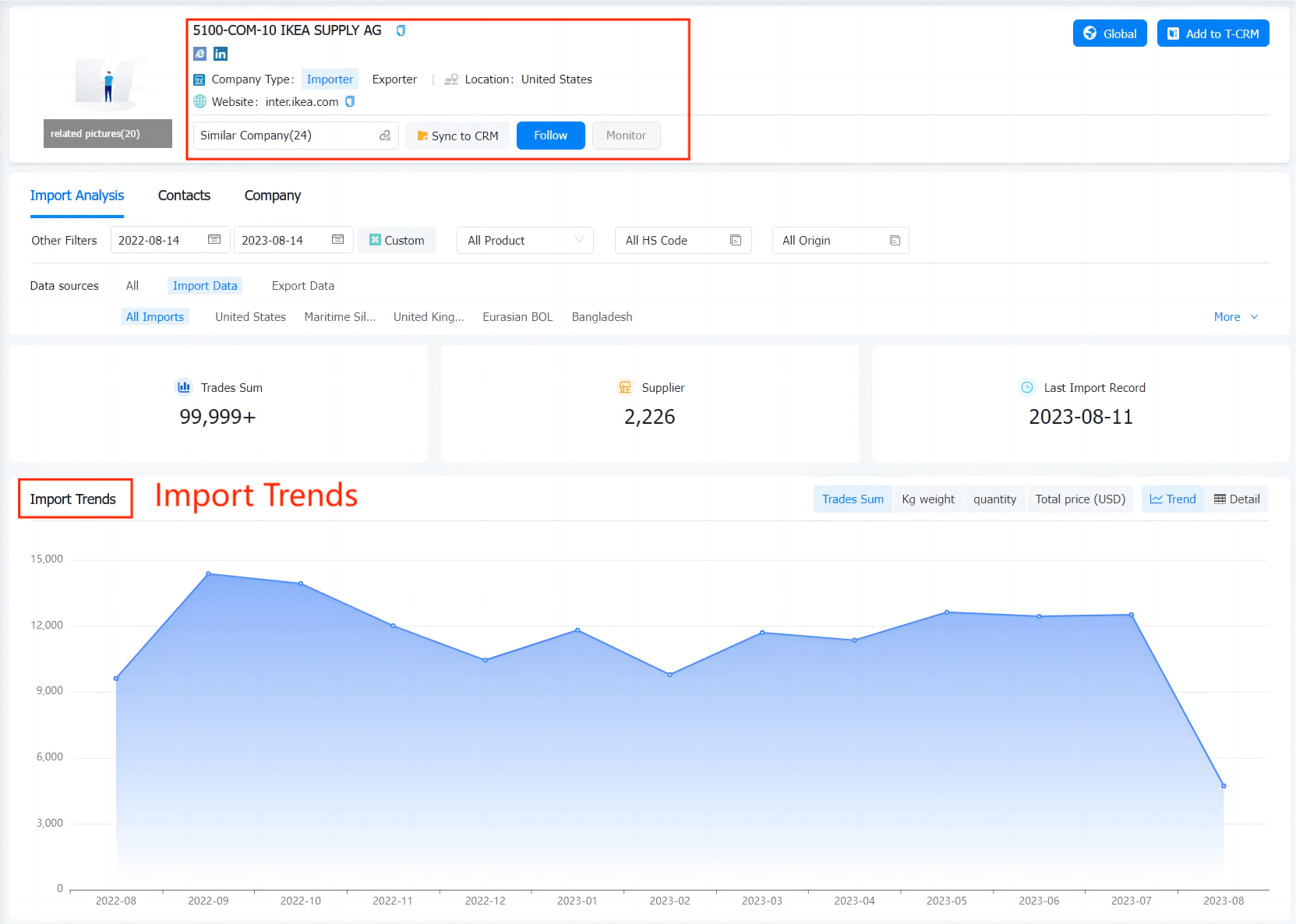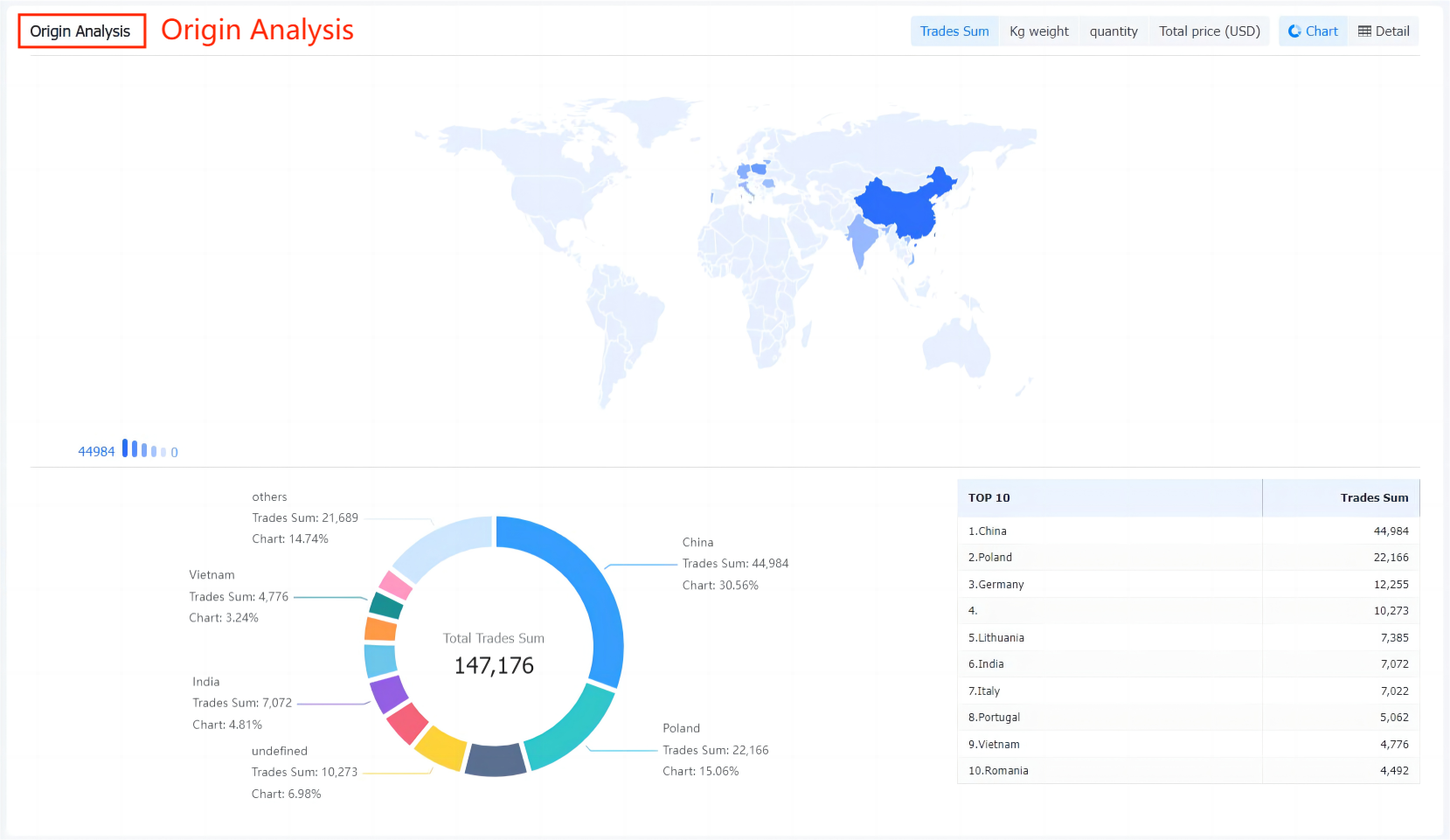 Trade Data Provider
Trade Data Provider
 07-11-2023
07-11-2023
Import statistics play a pivotal role in the world of international trade,
providing valuable insights into a country's economic health, trade patterns,
and trends. For companies engaged in import and export businesses, understanding
key fields in import statistics is vital for informed decision-making. In this
article, we will explore the significance of import statistics and the fields
that companies need to pay attention to for a successful global trade
strategy.

The Significance of Import Statistics:
Understanding the significance of import statistics is fundamental to making informed decisions in the global trade landscape. Import statistics offer a multifaceted view of a country's economic interactions with the rest of the world. Import statistics are far more than just numbers on a page; they are a treasure trove of insights that guide businesses through the complex terrain of global trade. By recognizing the significance of import statistics and incorporating them into their decision-making processes, companies can optimize their strategies, minimize risks, and capitalize on new opportunities, ultimately leading to success in international markets.
· Trade Volumes and Values:
Import statistics provide data on the volume and value of goods imported into a country. Companies should closely monitor these figures to assess the demand for their products in specific markets.
· Country of Origin:
The country of origin of imported goods is a critical field in import statistics. Companies need to pay attention to this information to identify potential markets for their products and assess competition.
· Product Categories:
Import statistics categorize products into various classes and categories. Companies should analyze this data to identify the most suitable categories for their products and explore opportunities in those areas.
· Tariffs and Trade Agreements:
Import statistics often include information on tariffs and trade agreements. Companies need to stay updated on this field to understand the impact of trade policies on their business, including the cost of imports and potential market access.
· Market Share Analysis:
Import statistics can help companies gauge their market share in a specific market. By tracking their performance over time, businesses can assess the effectiveness of their strategies and identify areas for improvement.
· Industry-Specific Data:
Import statistics offer industry-specific data that is relevant to a company's area of operation. For example, if a company is involved in the electronics industry, it should pay close attention to import statistics related to electronic products.
· Monitoring Competitors:
Companies can use import statistics to monitor the activities of their competitors. This involves tracking which products are being imported by competitors and from which countries. This information can guide a company's competitive strategy.
· Identifying Trade Trends:
Import statistics provide insights into trade trends, such as shifting consumer preferences, emerging markets, and changes in product demand. Companies can use this information to adapt and align their strategies accordingly.
· Regulatory Compliance:
Staying informed about import statistics helps companies ensure regulatory compliance. This includes adhering to customs regulations, product standards, and other legal requirements in the countries they operate in.
Conclusion:
In the realm of international trade, import statistics are a goldmine of information that companies can use to make informed decisions, optimize their supply chains, and remain competitive. By paying attention to key fields in import statistics, businesses can gain a deeper understanding of their market, assess market potential, and adapt to changing trade dynamics. Import statistics are not just numbers; they are the foundation upon which successful global trade strategies are built. Companies that harness the power of import statistics can navigate the complexities of international trade with confidence and success.
Market analysis involves assessing the positioning of competitors' existing products in conjunction with an enterprise's own advantages. This analysis informs the development of strategies aimed at creating a distinct and profound impression on customers, ultimately increasing the likelihood of customer acquisition. (>>> Click here to INITIATE MARKET ANALYSIS)
The Tendata platform seamlessly integrates three pivotal data sets to furnish comprehensive support for export-oriented enterprises:

1. Tendata Trade Data: This encompasses market research, product forecasting, customer development, customer retention, industry monitoring, and price anchoring.

2. Tendata Business Data: This facet involves delving into enterprise specifics, evaluating business reputation, financial standing, partner identification, risk assessment, and industry reports.


3. Tendata Open Data: With this feature, users can access global enterprise product information, precisely pinpoint company details, and access an expansive array of contact information (including key personnel and their roles, phone numbers, official website links, email addresses, and office locations). Additionally, it extends connectivity to major global social media platforms such as LinkedIn, Facebook, and Twitter. (>>>> Click here to REQUEST A FREE DEMO)

>>>> Click here to SEEK CONSULTATION<<<
Category
Leave Message for Demo Request or Questions


 T-info
T-info T-discovery
T-discovery

 My
Tendata
My
Tendata Market Analysis
Market Analysis Customer
Development
Customer
Development Competitor
Monitoring
Competitor
Monitoring Customer Relationship
Customer Relationship





































































































































